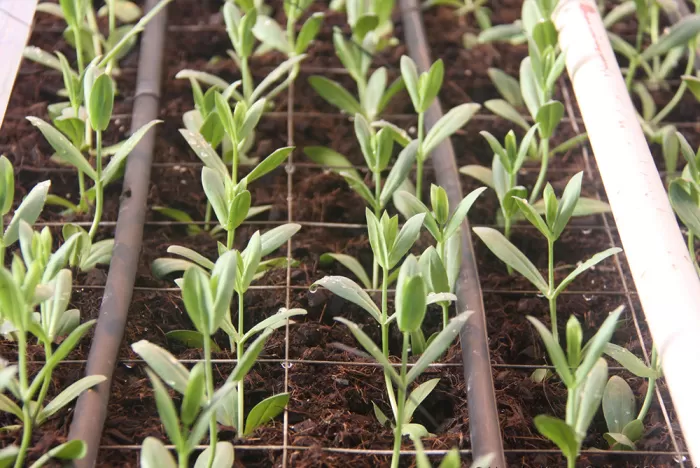Press release: making potting soil and substrates more sustainable
Ten organisations that are involved in the production, use and sale of potting soil and substrates have indicated in a joint letter to Minister Schouten of Agriculture, Nature and Food Quality that they wish to advance in the field of renewable raw materials and responsible peat extraction. Certain steps have already been taken and the sector sees additional opportunities in a joint chain approach.

The ultimate goal is to improve sustainability in the production of (fruiting) vegetables, floriculture and tree nursery crops that make our lives greener, healthier and more enjoyable.
With this letter, a broad coalition consisting of Glastuinbouw Nederland (Greenhouse Horticulture Netherlands), 'Vakgroep Bomen, Vaste planten en Zomerbloemen LTO-Nederland' (Dutch Nursery Stock and Perennials Association), Tuinbranche Nederland (Garden Sector Netherlands), RHP, RPP, VBN, VBW, VGB, VHG and the VPN, invites Minister Schouten to discuss a joint approach that considers the quality, safety, cultivation certainty and sustainability of potting soil and substrates.
Substrates are the key to high-quality production in (greenhouse) horticulture that efficiently uses water, energy, nutrients and land. They also make a significant contribution to the resilience of crops. Dutch (greenhouse) horticulture is an international high-quality sector and a global leader in the field of quality, knowledge, innovation and in making potting soil and substrates more sustainable.
Harmonised LCA methodology, responsible peat extraction according to RPP and using renewable raw materials are three crucial ingredients for a chain parties-based approach.
LCA-methodology
The potting soil and substrate sector is focused on limiting environmental impact in the entire production chain. To this end, a harmonised LCA methodology has been developed at the European level over the past two years, using input from NGOs, science and industry. The LCA offers insight into the impact of raw materials and substrate mixtures in every link of the production chain. The different raw materials have distinctive properties and individual positive and not so positive sustainability characteristics, as shown by the LCA.
Responsible peat extraction
The sector is committed to responsible peat extraction with a focus on nature development, biodiversity and climate change. Peatlands that are intact, i.e. nature areas that have not been drained, are not utilised for peat extraction.
By 2025, all peat used in the Netherlands must be covered by the RPP (Responsibly Produced Peat) certificate. Peatlands can only be certified if degraded areas have already been selected for this, and provided there is no impact on important conservation values. When using peat from RPP-certified peatlands, these areas are extensively restored after peat extraction, while choosing the best options for the environment and climate. This means that peat extraction contributes to the recovery of drained peat areas rather than extraction from valuable nature.
Renewable raw materials
In recent years, use of renewable raw materials such as tree bark, compost, wood fibre and cocopeat has been on the rise.
The parties have taken the initiative to formulate solid ambitions regarding renewable raw materials. In the professional market, organic substrate must be made up of at least 35% renewable raw materials by 2025. For the consumer market, the target is a whopping 60% renewable raw materials by 2025.
Ambitions for the subsequent period will be set based on the experience going towards 2025. The growing global demand for food and greenery, and therefore for raw materials and substrates towards 2050, is also a factor. Whether renewable raw materials will be available in sufficient quantities and of sufficient quality at all remains to be seen.
Moreover, growers need time to learn to work with new substrates through research and practical trials. In short, the transition to renewable raw materials will take many years.